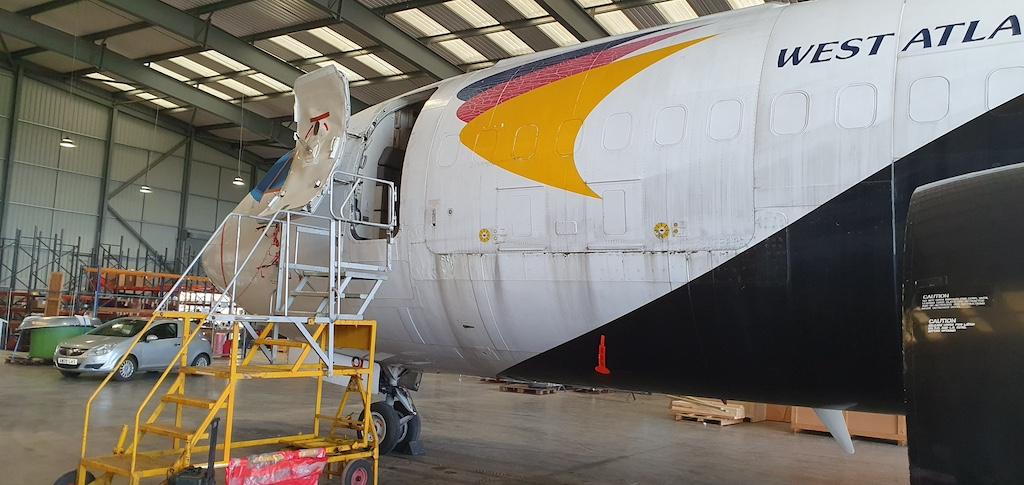
Owners of assets destined for dismantling are having a field day due to the high demand for used serviceable materials (USM), states Mark Gregory, chief executive at Air Salvage International (ASI).
In the three-year post-pandemic period, disassembly activity has fallen slightly due to the backlog of new aircraft deliveries and resulting lease extensions. As Gregory attests, ASI experienced a lull in aircraft coming in for disassembly at its Cotswold Airport facility in the UK, but work is picking up again.
“It’s currently a sellers’ market,” he tells Aviation Week. “If you own an asset that is destined for parts, you can almost demand what you want for it.”
Typically, the engines hold 80% of the value of an end-of-life asset and these are usually snapped up quickly. As Gregory recalls, an aging Airbus A320 10 years ago (without engines) fetched around $500,000 and that same aircraft today is valued upwards of $1.2 million.
“Currently, parts traders are looking for assets to buy, and they are willing to pay anything for it. It is a seller's market that will split around again at some point,” Gregory foresees.
ASI works with various parts suppliers, including some that Gregory describes as extremely shrewd, such as AJW and Avtrade. They know the market well and usually only stick to specific items. “They know exactly what they want--the high value parts-- and they want a minimum disassembly at a realistic price and done quickly.”
By ASI’s own calculations, among the 600-700 aircraft that are removed from service each year, around 8% of them are disassembled by ASI. Recently, the company disassembled a Boeing 747--its 1,500th project, an achievement Gregory describes as arguably a world record for an independent disassembly company.
“That specific 747 belonged to one of our customers, Air Atlanta. We often support operators with their aging aircraft program retirements,” states Gregory. He says the parts from that aircraft will return to Air Atlanta to support its aircraft.
Gregory observes a growing trend among airlines to disassemble aircraft to stock up on their own supply of spare parts. “There is a slight turn in the industry at the moment with operators seeing opportunities to consume their own aircraft. The alternative is going to market to buy the parts. which can be costly.”
In addition to Air Atlanta, Gregory names West Atlantic and Jet2 as some of the operators that have recently cannibalized their own fleets, which he considers a smart and cost-effective strategy for spares provisioning.
Gregory believes this trend is largely driven by cost savings, especially with escalating prices in the supply chain. “They are trying to save as much money as they can and when you look at the value of some of these spare parts, it’s a huge financial outlay for the airlines.”
Gregory mentions a few examples, for instance an integrated drive generator (IDG) for an engine that can come with a $120,000 price tag or a brake unit costing $36,000. “That is actually a small amount compared to some of the other major components such as landing gears, so collectively, it's a lot of money,” he states.





